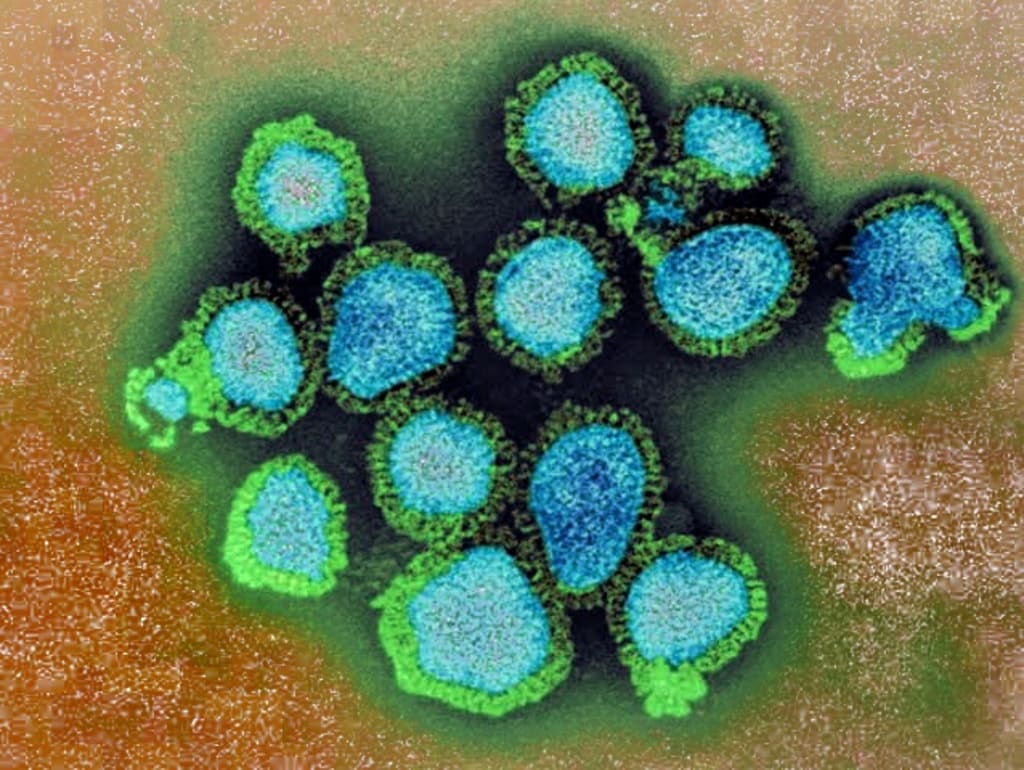what is H3N2 virus?
Remedy For H3N2 flue

IS H3N2 VIRUS?
H3N2 is a sub type of the influenza A virus that is known to cause seasonal flu in humans. It is a member of the Orthomyxoviridae family and is characterized by its hemagglutinin (H) and neuraminidase (N) surface proteins.WHAT 2
The H3N2 virus was first identified in humans in 1968, and it quickly became a prevalent strain of influenza worldwide. Since then, it has been responsible for several flu outbreaks, including the 2017-2018 flu season, which was particularly severe.
H3N2 is highly contagious and can spread through respiratory droplets when an infected person coughs or sneezes. Symptoms of H3N2 infection are similar to those of other strains of the flu and can include fever, cough, sore throat, muscle aches, and fatigue. In severe cases, H3N2 infection can lead to pneumonia or other complications, especially in older adults, young children, and people with weakened immune systems.
Each year, scientists monitor the spread of influenza and make predictions about which strains will be most prevalent in the coming flu season. Based on these predictions, they develop a vaccine that targets the most common strains, including H3N2. However, the effectiveness of the vaccine can vary from year to year, depending on how well the vaccine matches the circulating strains of the virus.
Overall, H3N2 is a significant public health concern, and it is essential to take steps to prevent the spread of the virus, such as washing your hands frequently, avoiding close contact with people who are sick, covering your mouth and nose when you cough or sneeze, and getting an annual flu vaccine.
2.SYMPTOMS
The symptoms of H3N2 virus infection are similar to those of other strains of the flu and can vary from mild to severe. Here are some common symptoms:
Fever: A sudden onset of high fever (above 100.4°F or 38°C) is a common symptom of H3N2 flu infection.
Cough: A dry or productive cough is one of the most common symptoms of H3N2 flu. It can be persistent and may last for several weeks.
Sore throat: The back of the throat can feel scratchy or sore, which can make it difficult to swallow.
Muscle aches and body pains: Body aches and muscle pains are common in H3N2 flu. The muscles of the back, legs, and arms may also feel tender.
Fatigue: People with H3N2 flu often feel extremely tired and have no energy, even after resting for a long time.
Headache: Severe headache is another common symptom of H3N2 flu infection.
Runny or stuffy nose: Some people with H3N2 flu may have a runny or stuffy nose, although this is less common than other symptoms.
In some cases, H3N2 flu infection can lead to more severe symptoms, such as difficulty breathing, chest pain, confusion, and seizures. People who are at a higher risk of developing complications from the flu, such as older adults, young children, pregnant women, and people with chronic medical conditions, should seek medical attention if they experience any flu-like symptoms.
.
3.TREATMEMT
The treatment for H3N2 virus infection typically involves managing 3the symptoms and providing supportive care to help the body fight off the infection. Here are some common treatments:
Antiviral medication: Antiviral drugs like oseltamivir (Tamiflu) and zanamivir (Relenza) can be effective in reducing the severity and duration of flu symptoms if taken within the first 48 hours of onset of symptoms. These drugs work by preventing the virus from multiplying in the body.
Fever and pain relievers: Over-the-counter medications like acetaminophen (Tylenol) or ibuprofen (Advil) can help to reduce fever and relieve pain and muscle aches associated with H3N2 flu infection.
Rest and hydration: Getting plenty of rest and drinking lots of fluids is important to help the body fight off the infection and prevent dehydration.
Oxygen therapy: In severe cases of H3N2 flu infection, oxygen therapy may be needed to help with breathing difficulties.
Hospitalization: Hospitalization may be required for people with severe complications of H3N2 flu, such as pneumonia or respiratory failure.
It's important to note that antibiotics are not effective in treating H3N2 flu because antibiotics only work against bacterial infections, not viral infections. Additionally, overuse of antibiotics can lead to antibiotic resistance, which can make bacterial infections more difficult to treat in the future.
Prevention is also key in managing H3N2 flu. The annual flu vaccine can help to prevent infection or reduce the severity of symptoms if you do get sick. Good hygiene practices, such as washing your hands frequently, covering your mouth and nose when you cough or sneeze, and avoiding close contact with sick people, can also help to reduce the spread of H3N2 flu.
There are several precautions that you can take to reduce your risk of contracting H3N2 virus:
Get vaccinated: Getting a flu shot is the most effective way to prevent the flu, including H3N2. It is recommended that everyone over the age of six months get vaccinated annually.
Wash your hands frequently: Wash your hands with soap and water for at least 20 seconds, especially after being in public places, using the restroom, blowing your nose, or coughing or sneezing.
Cover your mouth and nose: Use a tissue or your elbow to cover your mouth and nose when you cough or sneeze. This can help to prevent the spread of droplets containing the virus.
Avoid close contact: Avoid close contact with people who are sick, and stay home if you are sick to prevent spreading the virus to others.
Disinfect surfaces: Clean and disinfect frequently touched surfaces, such as doorknobs, light switches, and keyboards, to prevent the spread of the virus.
Practice good hygiene: Avoid touching your eyes, nose, and mouth, as these are common entry points for the virus.
Wear a mask: Wearing a mask can help prevent the spread of the virus, especially in public places where social distancing may not be possible.
It's important to note that these precautions are not foolproof, and it's still possible to contract the virus even if you take all the necessary precautions. However, they can significantly reduce your risk of getting sick and help to prevent the spread of the virus to others.
About the Creator
POINT OF VIEW
Hi iam Harish Kumar
I hope I will post Usefull Trending Stories and Informations and tips and Reviews.
Thank you






Comments
There are no comments for this story
Be the first to respond and start the conversation.